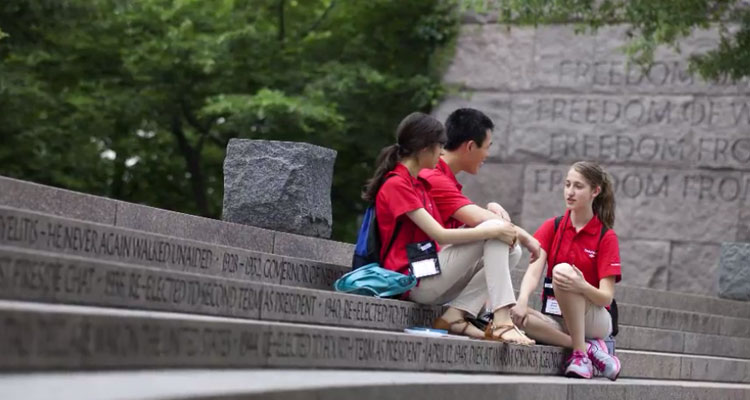There’s a reason why college admissions officers look for proven leadership ability when considering applications.
As noted by StudyPoint.com, the National Honor Society describes student leaders as “resourceful, good problem solvers, promoters of school activities, idea contributors, dependable, and persons who exemplify positive attitudes about life.”
All those traits breed success.
More generally, leaders are people whom others want to be around, gravitate toward, and can look up to, especially in stressful situations. In a student’s world, such situations might manifest themselves while preparing projects during class time, organizing events for a club or civic group, or on the playing field during an athletic season.
Effective leaders tend to exude confidence, accept responsibility, and take pride in both their best efforts and the best efforts of their group. Although those in leadership positions might be elected or appointed, truly effective leaders aren’t magically anointed. Leadership skills need to be developed and honed.
Melissa King, K12 senior curriculum specialist, knows exactly what those leadership skills colleges are seeking look like:
- The ability to encourage others to go the extra mile to provide for the greater good
- The ability to communicate, understand, and assist followers, employing constructive criticism as necessary
- A willingness to take risks and be courageous
- Having insightful, clear visions of targeted goals
- An ability to inspire people to be better tomorrow than today
King says that developing the characteristics associated with good leadership begins with learning how to make good choices and decisions. She suggests that a good first step for parents is to enroll students in extracurricular activities and to let young children become decision makers. An example is to let them select certain foods at the grocery store and, later, how and when to spend an allowance.
She adds that it’s important for leaders to consider multiple viewpoints, maintain a positive perspective, and realize that perfection is all but unattainable. Mistakes will happen along the way—a leader is there to minimize them and make sure they don’t recur.
So, how does a student take steps to become a successful and respected leader?
Ecampustours.com suggests five tips for students: 1) Know your strengths; 2) Gain experience; 3) Work well with people; 4) Be optimistic; 5) Be willing to take action.
“Developing leadership skills—that’s a learning-by-doing proposition and it happens in many different contexts,” says Patrick Keeney, director of college and career planing for high school product management at K12. “It’s experienced in the classroom, in small groups, in military groups, and others, so the practice opportunities have to be both broadly applicable and in the anticipated environment.”
Keeney’s experience as a youth basketball coach provided one such opportunity:
“I wanted my players to develop leadership skills. I would pull them aside as individuals, small groups, or as a team, and tell them what I expected in a given situation. Then I would give them the opportunity to practice that skill, and debrief afterward. That skill might be consistency: remaining calm in the midst of chaos. In that case, I would create a situation increasingly chaotic and filled with the pressure of the moment so that they could practice in it and respond.”
Keeney believes that it’s vital for parents to establish an environment in which they are appropriate role models and there is consistency. Parents must also be aware that peer pressure can turn future leaders into followers, often with negative consequences. Online education can help limit the exposure to negative outside influences.
“Peer pressure extends to the online world and penetrates the security that used to exist at home,” Keeney says. “If you can teach how important it is to choose friends wisely and to choose teammates wisely when you have the opportunity, that’s the best way to set up your teen for success. That minimizes negative peer pressure and helps ensure that they have some like-minded friends to support them.”
Moreover, leadership is about determination, drive, and follow-through.
“Once challenged, a leader will put forth the proper effort and help others do the same until the desired goal is reached,” Keeney says.
“Online education allows for this better than a classroom setting. In most situations, we do not ask or allow teens to practice leadership. In a typical classroom, in a band or on an athletic team they are more likely followers than leaders. In this case, it is important to treat them as if they are all to be leaders—although good followers usually grow into good leaders.”
Keeney offers another important point when it comes to leadership development.
“Leaders have their own style,” he says. “Some are quiet, some are passionate, others are ‘in your face.’ So, producing cookie-cutter leaders is impractical. The best leaders may have the same fundamental traits, but each will develop their own unique story.”
Featured Image via Bank of America Student Leadership Summit






















































































































